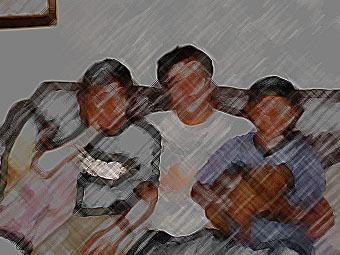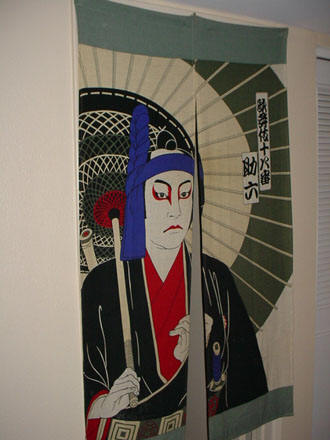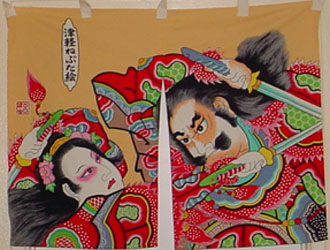|
|
||||
A Scholar and a Gentleman
Introduction This is the story of Rodrigo Torres and his migration to the United States. I conducted an interview with my friend one evening and simply took notes as he told his story. I have done my best to tell his story accurately. The story is presented in the first person but it is not necessarily verbatim. The story also tells of the migration of some of Rodrigo's family. I am very grateful for the opportunity that was given to me by Rodrigo to interview him and I am also grateful for the politeness that he and his family extended to me in the process. I hope you enjoy his story, I know I did! Story My
grandparents on my father’s side were the first to come to the
United States from the Philippines in 1916. They came here by a
boat that recruited plantation workers. One day my grandfather saw
a white guy at a dock who was recruiting workers to go work on
island named Hawaii. My grandfather did not know how far away the
island was. He thought that it was just the next island.
My grandfather and his two brothers were only given six hours to get their belongings. My grandfather went home and my grandmother told him she didn’t want him to go. My grandfather insisted that they needed money. My grandmother followed him and jumped on the bus after him that was going back to the dock because she didn’t want him to go. When they got to the dock the skipper asked grandmother if she wanted to go and offered her work because they needed someone to help take care of things on the boat I guess. They both went and were on the boat for two months before they reached Hawaii. No one in my family heard from them for three years. They did reach the island of Lanai, Hawaii and worked in the sugar cane fields. They were treated fine but the work was hard and the boss liked them. My father was born on a sugar plantation there on Lanai. Eventually,
my grandparents went back to the Philippines with my father. My
grandfather’s brothers stayed in Lanai. My father grew up in the
Philippines and by the early 50’s he wanted to come back to the U.S.
but he had no papers. Even though he was born in Hawaii he could
not board a plane to fly here because he could not prove it. He
sent letters back to family in Hawaii and eventually made it back to
Lanai. Also, by this time he had already met and married my mother in the Philippines. He worked in the cane fields in Hawaii. In the Philippines he held a job as a sanitary inspector and was even mayor for a while in Cauayan, Negros Occidental. He worked other jobs in the U.S. also and would travel back and forth to the Philippines and U.S. bringing money home.
My mother was a nurse in the Philippines and in 1958 my mother and father came to the U.S. together, this time ending up in New Jersey. My mother already had friends and relatives there. They promised her a job in nursing when she came with their help. They lived in the Elizabeth Township of New Jersey for many years and sent money back home to the Philippines.
In 1962, my mother got pregnant with me and went back to the Philippines to give birth as she had done with my seven other siblings. My parents wanted us to be raised in the Philippines because our grandparents, other relatives, and people in the village could all help in raising us. This would make things easier. I first came to the Philippines in 1965 when I was three years old. I stayed in the U.S. for three years and went back to the Philippines in 1968 to start school. I attended elementary, grade school, and college in the Philippines. In the summers I would come to the U.S. to visit my family and in the winters they would come to the Philippines to visit me.
During high school I would come to the U.S. in the summer and work at place like McDonalds or as a bus boy and bring home money to the Philippines. At this time there was a pretty open system between the U.S. and Philippines and I had a green card. It was made easier because I was the child of my parents who were in the U.S. legally at this time. I felt as if I had a dual existence between the Philippines and the U.S. and I didn’t experience culture shock because I had been traveling back and forth since I was young. Eventually my working in the U.S. earned me enough money to pay for my college tuition in the Philippines.
I was a scholar at the University of the Philippines and graduated valedictorian with a degree in Biology. At the University we primarily spoke English not Tagalog. The Constitution of the Philippines was actually written in English and in the courts people have to speak English. I graduated in 1982 and continued to travel back and forth between the U.S. and the Philippines and also traveled in Southeast Asia. Also, I forgot to mention, early in my college career I was a student volunteer in a refugee camp in Bata-an, Philippines. During and after Vietnam people fled from Vietnam and came to neighboring countries in Southeast Asia. There were about 100,000 people who fled from Vietnam to the Philippines and made the camp their temporary home.
In 1984, I went to the college of medicine in the Philippines to
become a doctor. At this time we were under the dictatorship of
Marcos and there were daily uprisings from common people, workers,
and students. I was involved in these protests. One day I was at a
protest in Manila and I was carrying a banner that said “Down with
imperialism, Marcos, and the U.S.” and by the time I got to the end
of the street I was blasted in the face by water from a hose on a
fire truck. I woke up in the hospital and I was later arrested with
about 60-100 other people. I was forced to live in a military style camp for six months. I was allowed to go to school during the day but had to check in at night and sleep there. At this time many universities throughout the country were involved in the protests and I heard that people, friends of mine were starting to go missing. I heard that some were beheaded and killings were occurring. My parents heard about what was going on and purchased a plane ticket back to the U.S. for me that had to be picked up at the airport. My cousins had to pick it up because I was being monitored closely. On July 17, 1984 I attended my afternoon classes but skipped my evening class and my cousins picked me up and took me to the airport. I was a little scared that the military might be at the airport and find me. I was not that scared though because they probably wouldn’t even know I was missing because there was so many back at the camp. I eventually made it on the plane. My parents picked me up at the airport on July 18 at midnight and asked me where my luggage was. I said I did not have any. My mother also thought that I looked like I was in the military because of the fatigue pants I was wearing from the camp.
I stayed in the permanently in the U.S. for five years before I went back to the Philippines. During this five years I did a lot of traveling and I worked at various jobs. Sometimes I would work long enough to get about $300 dollars and then I would travel more. I felt lost and depressed and was running away because I felt as if a ran away from what was going on back in the Philippines. Eventually, I ended up in Alaska and stayed there for 10 years. I first worked in a cannery and later worked at various jobs on fishing boats. I was able to save a lot of money and I invested some in oceanfront property in the Philippines.
Later, I ended up in Seattle with my wife whom I met in a cannery in Alaska. I traveled back and forth between Alaska and Seattle because of work. In 1994 my son Juaquin was born and eleven months later his brother Romulo was born. At about this time I quit working in Alaska. As an immigrant I have experienced ups and downs. Once I was working as a waiter at a restaurant and a patron that I was serving asked another waiter, “where is that brown monkey that was serving us”. I confronted the customers angrily, and told them that my name was Rodrigo and pointed to my name tag. I haven’t really observed any discrimination from other minorities but I have observed competition between them for the attention of the dominant whites. Actually, I seem to fit into many different minority groups according to others. I have had Navajo, Chinese, Mexican, Vietnamese, and Samoan people all try to speak to me in their native tongue.
I eventually, like my parents and grandparents plan to go back to the Philippines when I retire. Most Filipino people that I know do. There is no place like home. In a way I feel like perhaps I should have assimilated to the American way of thinking by now. Maybe I desire to go home because there is still something there, unlike some places people have migrated here from, like refugees. I also plan to keep ties with my homeland and my children. One way I plan to do this is by sending them to the Philippines within the next two years to attend high school. I want to see where they came from, their roots, the poverty, etc…so that when they come back they have a better appreciation for life here. I am the only member of my family that is not a documented American Citizen. I simply do not want to pay $300 dollars to become one, especially if I do not plan on staying here forever. Even though I haven’t taken an official oath I still consider myself an American and Filipino citizen. Analysis As stated earlier. I am very grateful for the opportunity that was given to me by Rodrigo to interview him and I am also grateful for the politeness that he and his family extended to me in the process. As part of this assignment we were to given the task of analyzing the interview we conducted and relating some of what we have learned this semester to that story. Rodrigo's story reminded me of many stories that we have read over the semester. One article that we read was entitled, “Voyages: From Tongan Villages to American Suburbs”. The book was written by Cathy A. Small. The book examined Tongan immigration from an island nation in the South Pacific to the United States. The book described a transnational existence held by the immigrants and talked much about how they had a dual existence. Rodrigo's story paralleled the dual existence theme held by the Tongans. Rodrigo too would travel back and forth between the U.S. and the Philippines. I also think of a book entitled, “In and Out of Morocco”, by David A. McMurray that we read this semester. I think this book can be related to Rodrigo’s story. This book described the flow of immigrants in and out of Morocco and the effects on the region. One topic discussed in the book was the nostalgia of items brought home from other countries. Rodrigo informed me that in the Philippines, they referred to items from the states as “state-side” meaning they were from the states. He also told me during the interview that his family was the first to have a television in his village and people from the whole village would congregate at his house. This eventually forced his family to set up a viewing area outside of their home to accommodate all the people that kept coming to his home. Also, prior to conducting the interview with Rodrigo, I read an article entitled, “Plight of Some Filipinos in America”, by Victor P. Gendrano. This article described how some Filipino immigrants today are bringing their older relatives over to the U.S. for negative reasons. The article makes the claim that some Filipinos are bringing their older relatives to the U.S. simply to be housekeepers or babysitters and that they are treated differently in the U.S. by those in society and by their westernized family members. Rodrigo told me that he did observe this a little in Filipino culture here in the U.S. In contrast, Rodrigo described in his story, that his parents sent the kids back to the Philippines because it made things easier. The extended family and whole village could take part in raising the children. Rodrigo also discussed how he would like to send his own children to the Philippines to experience where they came from. Another article that we read this semester was entitled, “Transnationalism: A New Analytic Framework for Understanding Migration”, written by Nina Glick Schiller, Linda Basch, and Cristina Blanc-Szanton. This article discussed how migrants from the Philippines were encouraged by economic and legal means to come home to the Phillipines at least once a year. The article states that transnational migration is officially sanctioned and regulated by the Philippine government because the remittances are so very important to the countries economic well being. Rodrigo did not describe these political sanctions or legal means but in his story he did talk about how his parents would come home once a year to visit and how he would visit the U.S. once a year. He also talked about how they would bring material items and money back to the Philippines. Lastly, Rodrigo's story reminded me of a story we read in a book entitled, "Crossing The Boulevard", written by Warren Lehrer & Judith Sloan. The book "Crossing The Boulevard" is a compellation of stories about individuals migrating to the United States. The one story within the book that was a little similar to Rodrigo's was entitled "Cargo Flight to Somewhere". The story described a man's journey to the us via a cargo flight to escape corruption an the war stricken streets of the Democratic Republic of Congo. The man eventually arrived in the U.S. and had to live involuntarily in a a detention center run by I.N.S. The Center was called Wackenhut Detention Center and was located outside right outside J.F.K. airport. Rodrigo was also forced to live involuntarily in a military style camp. However the camp that he stayed at was located in the Philippines not the U.S. Nevertheless both stories were very interesting. I will never forget either.
|
||||







